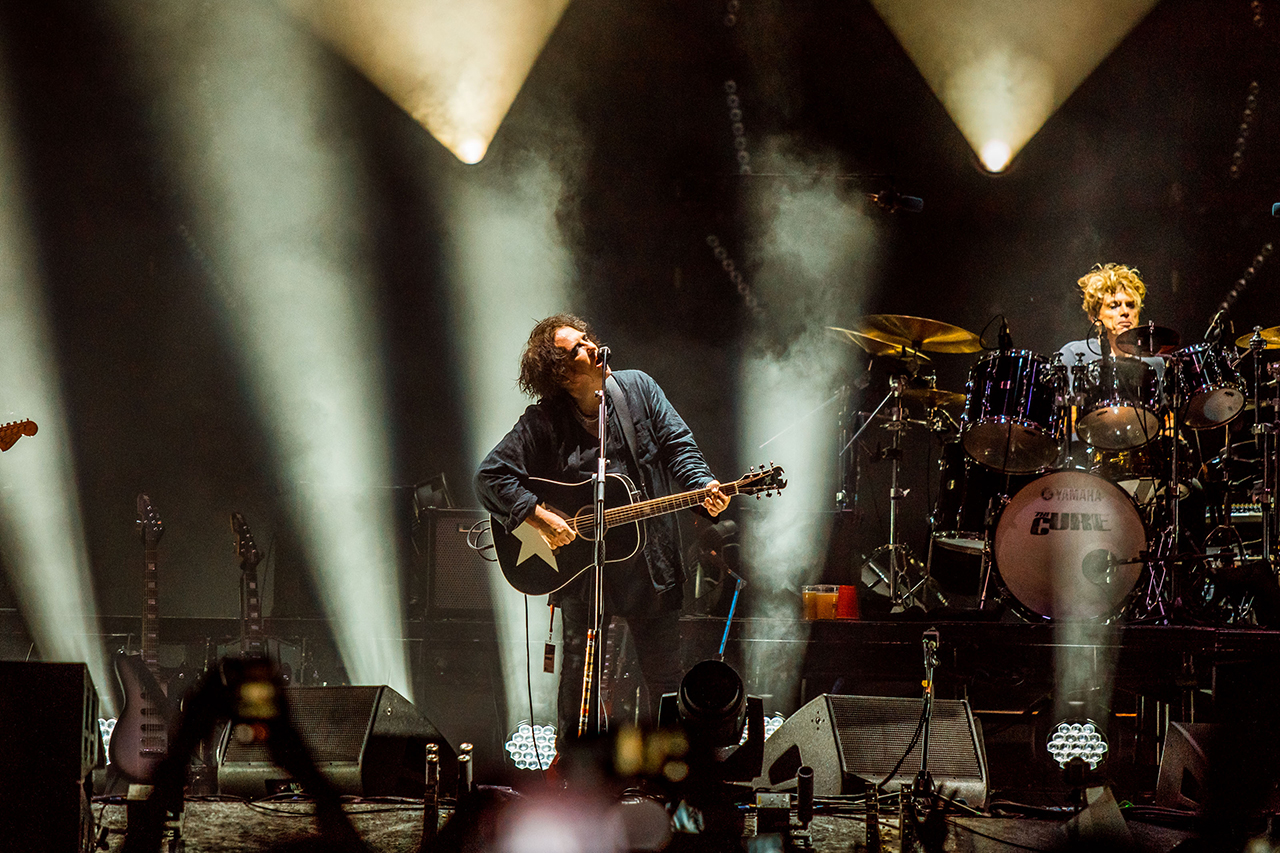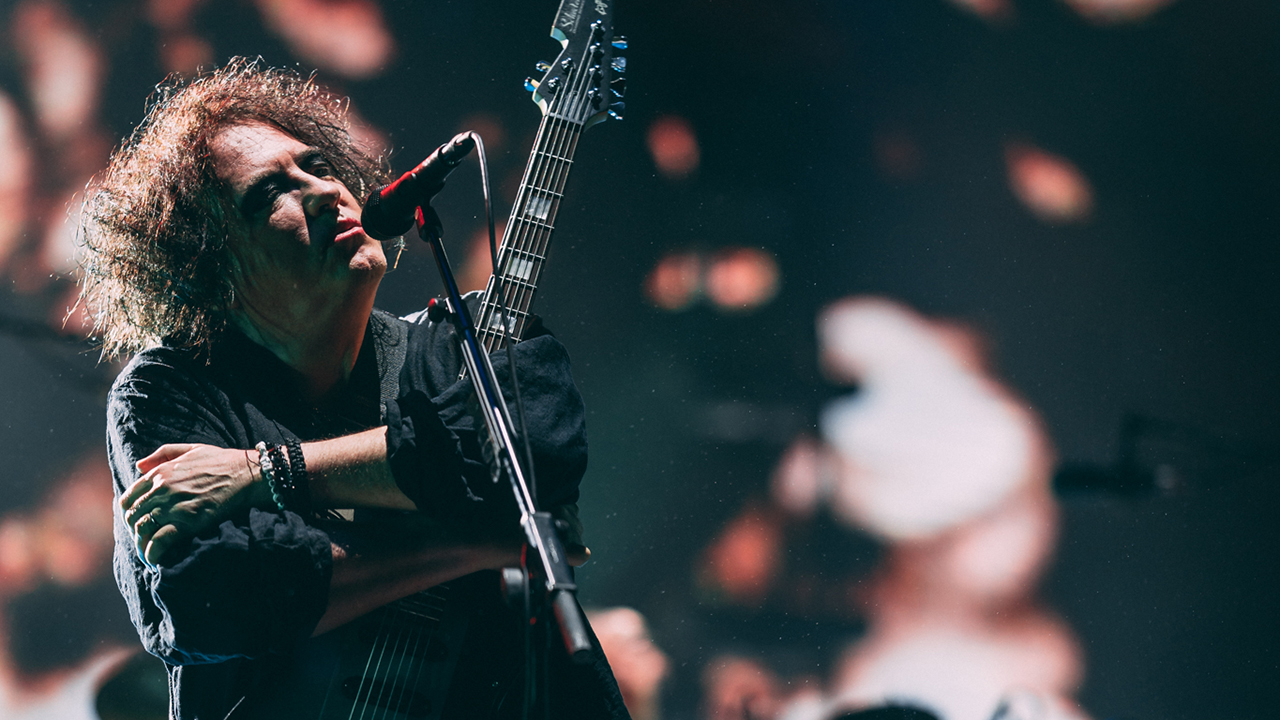On the surface, Serbia's Exit festival is the ultimate dance music party. But away from the throbbing crowds and big beats, it has developed a bubbling undercurrent that taps into the world's best alternative music. The fact that British goth rock giants The Cure are headlining this year's festival is testament to how far EXIT has come in pushing rock music as an integral part of its agenda.
Joining the swarming mass of people crossing the Varadin Bridge towards the Petrovardin Fortress, you sense what this festival means to the people here. While the site has never seen conflict itself, the region’s troubled recent history makes EXIT the scene of a nation embracing art as a conduit for better times. EXIT was born, and still exists, to party a brighter future into being.
This festival favours the brave. Losing yourself to the labyrinth of stages in the fortress walls will see you uncover everything from dub reggae roasting (giant giraffes in tow), to Serbian trap and drunken karaoke in broken English. you can open doors into a planetarium or step down a tunnel to basement club swathed in neon light as deep techno pounds. Surprises lurk everywhere.

But it's the guitar portion of bill that we at Louder are particularly interested in, as this year it pivots around two genre-defying greats.
One of these is the set by ex-Pantera vocalist Phil Anselmo. As he and his band The Illegals take a set of Pantera classics to the main stage on Friday night, the excitement is palpable. “Every time we play these songs, it is with total respect for Dimebag and Vinnie,” Anselmo says of his fallen brothers, paying respects in the only way he knows how.
Of course, nothing can capture the majesty of Pantera in their heyday. They were a brotherhood relying on each individual, but this is as close as we’re going to get. Serbian metal-heads lap up this opportunity to revel in tracks from the band that defined 90s metal and put the 80s to bed.
As thrilling a set as this was, even Pantera classics can’t compete with the brilliance of The Cure’s opening night masterclass. In the throes of their 40th-anniversary celebrations, they are finally getting the recognition they deserve as one of the world's all-time great bands.
“Sorry it has taken so long to get here,” says Robert Smith from the stage. Turns out it was worth the wait – The Cure have made it to Serbia for the first time, and they reward the patient crowd with a near flawless set spanning their career.
The chiming, blistering euphoria of opener Plainsong from The Cure's ground-breaking Disintegration album sets the stage for two-and-a-quarter hours of perfection. Watching their set unfold prompts the question: how many other acts can claim to have released pivotal releases in post-punk, indie, shoegaze, goth rock and pure pop without ever losing sight of their own identity?
As Trent Reznor pointed out at the band’s Hall of Fame induction, “Robert Smith is that rarest of things: A 100 percent authentically Robert Smith kind of person who lives a 100 percent authentically Robert Smith kind of life.” Authenticity is central to Smith’s persona – his proto-goth image still intact, he has never compromised or changed.
Everything about tonight's set is pinned on Smith’s voice, which still stands up 40 years on. His tones are capable of anger, despair, optimism, love, hate and beauty in a single note. Endearingly awkward, but reassuringly confident in that part of himself, Smith presides of over a near religious experience, imparting his gospel. The heavens open as he sings 'We kissed as the sky fell in'.
And then there are the songs. The sumptuous sway of Pictures Of You sees Smith lost in a moment of pure contemplation, grasping his guitar like a loved one. High’s kinetic indie changes the pace, before giving way to a section of the forlorn, introspective end of the Cure's output. The stark Just One Kiss gives way to sad-banger Lovesong. Smith struts around the stage to Last Dance and masters the big, gothic pop of Fascination Street.
Perfectly paced and timed, hits Inbetween Days and Just Like Heaven offer respite, almost displaying a different band entirely. In typical Cure style, these highs flow into half an hour of wonderful gothic gloom, moving from the unrelenting From The Edge of the Deep Green Sea to the Joy Division-esque post-punk of Play For Today and goth rock pinnacle A Forest.
As the band leave the stage to Disintegration, every one of the 56,000 record crowd was left gasping for air. But, this is The Cure, and there's still much more to come. Namely, an encore of peerless bangers which turn EXIT into a bouncing, sweaty pop party. Sure, Lullaby is a slow-burner, and Caterpillar a sub folk-rock excursion but The Walk’s massive electro-pop kickstarts a run of songs most bands could only dream of having produced.
There is nothing more jubilant than the crowd reaction to mega-hit Friday I’m In Love, but followed by Close To Me and Smith losing it, dancing, waving and loving every minute, to Why Can’t I Be You? it’s hard not to be moved. They end with the perfection of Boy’s Don’t Cry and that was it: an exercise in how to headline a festival.
In 2019, following their Rock'n'Roll Hall Of Fame induction and an already-classic Glastonbury headline set, The Cure are finally getting placed on the pedestal they deserve, taking their place in the list of revered “classic” acts alongside the likes of The Rolling Stones, The Beatles, Queen, Fleetwood Mac, Led Zeppelin et al.
But the fact is The Cure transcend them all. Their EXIT set proves this: The Cure consistently deliver rock perfection that defies genre and time.
